US Sanctions Executives Of Iranian Drone Maker
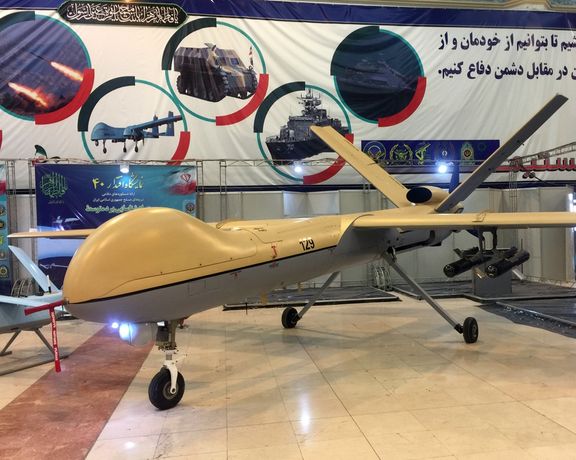
The United States on Friday imposed sanctions on the board of directors of Iranian drone maker Paravar Pars, as a measure against Iran supplying drones to Russia.

The United States on Friday imposed sanctions on the board of directors of Iranian drone maker Paravar Pars, as a measure against Iran supplying drones to Russia.
The US Treasury Department said the Iranian drones made by the company were being used by Moscow to attack Ukraine's critical infrastructure.
In a statement, the Treasury Department's Office of Foreign Assets Control (OFAC) announced it has designated eight senior executives of Paravar Pars.
"Iranian entities continue to produce UAVs (unmanned aerial vehicles) for Iran's IRGC and military. More broadly, Iran is supplying UAVs for Russia's combat operations to target critical infrastructure in Ukraine," said Brian Nelson, the US Treasury's top sanctions official.
The drone maker was previously sanctioned by the United States and the European Union for making drones for Iran's Islamic Revolutionary Guard Corps Aerospace Force.
The name of Alireza Tangsiri, the Commander of the IRGC Navy, could be seen in the list of targeted people.
The forward base ship IRIS MAKRAN (MAKRAN), an oil tanker that was repurposed for naval operations and maintains UAV launch capabilities, as well as the naval frigate IRIS DENA (DENA) are included in the list.
As a result of Friday's action, all property and interests in property of those individuals that are in the United States or in the possession or control of US persons must be blocked and reported to OFAC, the Treasury Department noted.
People that engage in transactions with the individuals designated on Friday may themselves be exposed to sanctions, the department added.
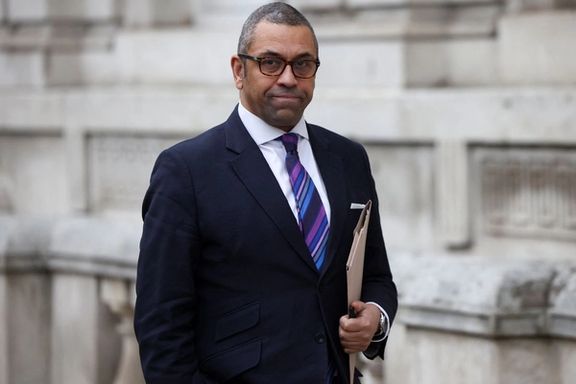
Plans for the United Kingdom to sanction’s Iran’s Revolutionary Guard have been pout on hold after the Foreign Office raised concerns, The Times reported on Thursday.
In the wake of a bloody crackdown on antigovernment protesters in Iran, Britain and the European Union began considering proscribing the Islamic Republic’s leading military, intelligence and internal security juggernaut.
The Revolutionary Guard (IRGC) has also been linked to acts of terror abroad, including threats against Iran International’s journalists working in London. The network’s headquarters in Chiswick came under Metropolitan Police protection in November when threats became serious.
The Times says that while home secretary Suella Braverman and security minister Tom Tugendhat support sanctioning the IRGC, according to sources the Foreign Office has blocked the move, “citing the need to keep communication channels open,” with Iran.
The report added that the Home Office is hopeful that “proscription will eventually progress but it is expected to be delayed by weeks if not months.”
The West’s relations with the Islamic have also soured for a lack of a nuclear agreement after almost two years of talks and Iran’s move to supply Russia with killer drones used against Ukraine.
In a separate ‘Leading Article’ The Times called for listing of the IRGC as a terror organization, saying not doing so would hardly change Tehran’s behavior and policies.
“Yet it is surely time to abandon the illusion that anything useful can be obtained though diplomatic engagement with Tehran. The theocratic regime has long since abandoned any restraint as it clings to power,” The Times said.
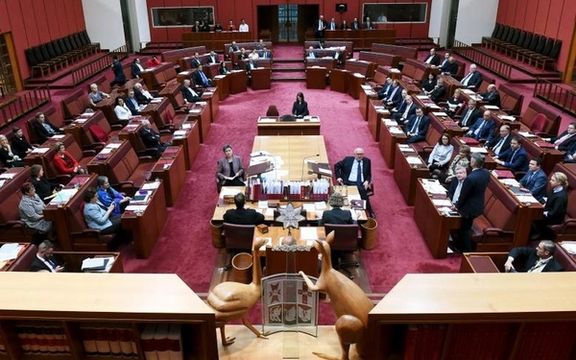
The Australian senate has called on the government to designate Iran’s Revolutionary Guard as a terrorist organization and impose further sanctions on the regime’s officials.
In a 128-page report on the current protests across Iran condemning institutionalized oppression of women and the Islamic Republic’s brutal response to quell the uprising, the senate decried the use of live ammunition and indiscriminate force by security agents against civilians.
The Foreign Affairs, Defense and Trade References Committee, which issued the report, urged the Australian Government to be unequivocal in its response to violence and human rights abuses in Iran, adding that “whilst Iran’s future must ultimately be written by the people of Iran in its own streets, the protection of human rights is a moral obligation and a practical necessity for us all.”
The committee, reporting on behalf of the senate, said that “evidence presented to the committee painfully illustrates the wholesale maltreatment of a nation by the very authorities whose job it is supposed to be to safeguard and protect the Iranian population.”
“Hundreds have been killed and many thousands wounded. Tens of thousands have been arrested. A number have been sentenced to death—some already executed—without access to a fair trial. Confessions are extracted through torture. Adults and children are subjected to horrific physical and sexual abuse in prison,” read part of the report, titled “Human rights implications of recent violence in Iran.”
Having studied a very large sample of submitted reports and evidence, the report made a series of recommendations designed to hold accountable a regime for abusing its own people, and reduce the Islamic Republic’s ability to violate human rights without consequence.
The committee recommended that the Australian Government take the necessary steps to formally categorize the IRGC as an organization involved in supporting and facilitating terrorism, also calling for the use of sanctions to target Islamic Republic and IRGC-affiliated individuals and entities responsible for malicious cyber activity against Australia.
It also urged the government “to use the available Magnitsky legislation to expand the list of individuals and entities subject to sanctions in response to human rights abuses in Iran, with particular focus on senior officials responsible for violence, human rights abuses, arbitrary detention and executions without due process.”
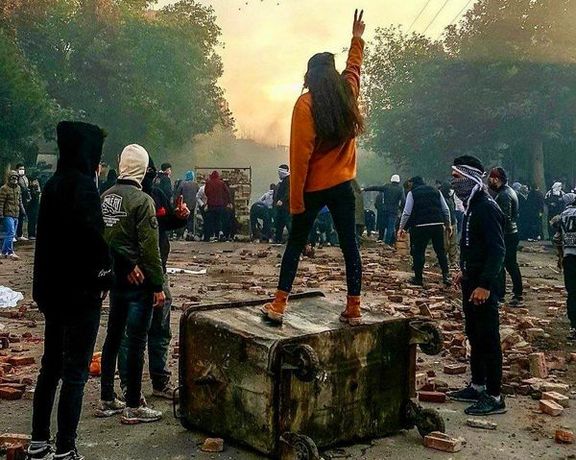
The document also called on Canberra to oppose the election of the Islamic Republic to United Nations’ bodies in light of the regime’s clear disregard for human rights, it said, particularly the rights of women and girls.
The senate also expressed concerns about credible allegations of intimidation and threats against Australian citizens, residents and their families, urging the responsible government ministers to provide an update to the Parliament and the Australian public on the government’s current assessment of whether persons connected to the regime are undertaking such behavior in Australia.
The committee also recommended that Australia should minimize relations with the Islamic Republic to “the greatest extent possible in recognition of the appalling behavior of the regime,” adding that the government should increase transparency and better inform the public about the status of its diplomatic relations with Tehran, as well as the security concerns in relation to the regime’s behavior relating to cybercrime, hostage diplomacy and threats to Australian residents.
“Implementing the committee’s recommendations would place Australia more firmly in the community of nations which have heard the Iranian people cry: Enough,” read the report, acknowledging that “Australia lagged well behind many of our partner Western democracies in taking action to send a clear unambivalent message to the Iranian regime that what they are doing is grossly unacceptable.”
The West has stepped up pressure on Iran over its crackdown on protests and arms supply for the Russian invasion of Ukraine as the US, European Union and United Kingdom imposed fresh sanctions on Tehran.
Earlier in the day, US Special Envoy for Iran Robert Malley said that “all corners of the Biden Administration have worked urgently and powerfully to mobilize the international community and confront the Iranian regime’s human rights abuses.”
On Tuesday, US lawmaker Representative Claudia Tenney (Rep-NY) reiterated, “We must impose the strictest sanctions possible on the leaders of the murderous Iranian regime, which is the world’s leading state sponsor of terrorism.”
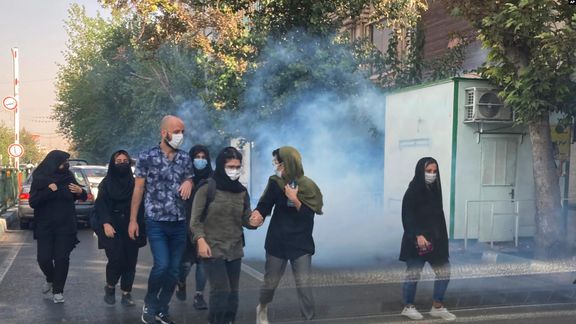
Australia has imposed new sanctions on Iranian security officials, following a series of sanctions by the United States and the European Union in recent weeks.
Australia on Tuesday sanctioned 16 individuals and one entity involved in the deadly suppression of antigovernment protests and supply of kamikaze drones to Russia used against Ukraine’s infrastructure.
The sanctions apply to travel bans and asset freezes on the targeted people for their role in “serious abused of human rights in Iran,” including the army’s commander-in-chief Abdolrahim Mousavi and key figures in the Basij militia of the Revolutionary Guard.
“The [Iran] listings cover serious violations or serious abuses of the right to life and the right not to be subjected to torture or to cruel, inhuman or degrading treatment or punishment,” the Australian government said Tuesday.
The United States also on Tuesday added seven Iranian entities to its trade blacklist for producing drones that Russia uses to attack Ukraine, the Department of Commerce said.
The United States and the European Union slapped a series of sanctions on Iranian officials and entities on January 23, citing human rights violations and the supply of drones to Russia.
The Australian parliament is scheduled to publish a report of its inquiry on the situation of human rights in Iran on Wednesday.
Iran has come under Western pressure since October for using widespread violence against protesters. So far, security forces have killed more than 500 citizens, seriously injured hundreds and arrested close to 19,000 people.

The United States Tuesday added seven Iranian entities to its trade blacklist for producing drones that Russia uses to attack Ukraine, the Department of Commerce said.
Nearing a year since Russia's invasion of Ukraine, allies have scrambled to gather and deploy air defenses to defeat cruise missiles and Iranian-built kamikaze drones that have attacked energy infrastructure this winter.
Tehran’s decision to supply drones to Moscow has led to Western backlash against the Islamic Republic amid suspended nuclear talks and the violent suppression of protests in Iran. Washington says Tehran should stop its military support for Russia and the crackdown on protesters.
After Ukraine brought down some Iranian drones and examined their remains, it was discovered in November that dozens of American and Canadian parts were used in their manufacturing.
Other ground-based air defense systems such as Raytheon Technology Corp's RTX.N Patriot have been pledged by the United Kingdom, the United States and the Netherlands as allies hope to stave off further power disruptions.
The Iranian entities added to the blacklist are Design and Manufacturing of Aircraft Engines, Islamic Revolutionary Guard Corps Aerospace Force, Islamic Revolutionary Guard Corps Research and Self-Sufficiency Jihad Organization, Oje Parvaz Mado Nafar Company, Paravar Pars Company, Qods Aviation Industry, and Shahed Aviation Industries.
The Commerce Department posting said the Iranian drones are being transferred to Russia for use in Ukraine, activity that is contrary to US national security and foreign policy interests.
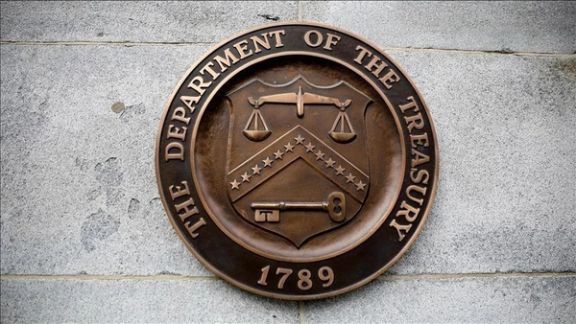
The United States is sending its top sanctions official to Turkey and the Middle East next week to warn countries and companies not to violate US sanctions on Russia and Iran.
Brian Nelson, undersecretary for terrorism and financial intelligence, will travel to Oman, the United Arab Emirates and Turkey from Jan. 29 to February 3 and meet with government officials as well as businesses and financial institutions to reiterate that Washington will continue to aggressively enforce its sanctions, a Treasury spokesperson told Reuters.
"Individuals and institutions operating in permissive jurisdictions risk potentially losing access to US markets on account of doing business with sanctioned entities or not conducting appropriate due diligence," the spokesperson said.
Although the trip appears to be firstly aimed at Turkey not to violate sanctions imposed on Russia, but Nelson will also raise the issue of Iran’s sanctions evasion.
Iran is using regional intermediaries to evade sanctions on its oil exports and financial transactions. The latest example is dollar smuggling from Iraq to Iran, which has prompted the US to scrutinize dollar transactions by Iraqi banks. The move has led to shortage of dollars in Iraq and fall of its currency.
Nelson will warn businesses and banks in Turkey that they should avoid transactions related to potential dual-use technology transfers, which could ultimately be used by Russia's military, the spokesperson said.